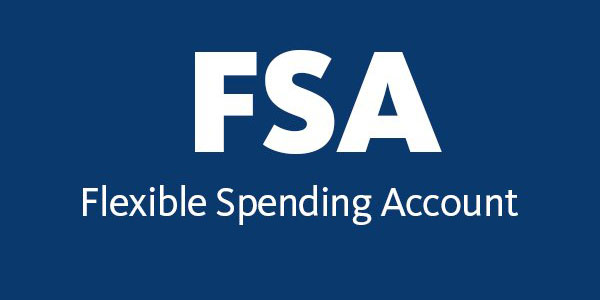If your job offers you a health plan, you can avail this opportunity by using a flexible spending account. You can pay for medicines, other healthcare costs, deductibles, and co-payments with an FSA account.
What is a Flexible Spending Account?
A flexible spending account is an account that allows you to pay for your medical bills, other specific medical emergencies, and dependant care expenses without tax money through your job health plan. You can get an FSA account through your employer, which is providing you with this leverage.
A flexible spending account would also be defined as a saving account that lets you keep aside the money ($2,850 for 2022) annually. It is funded by the money deducted from your pay based on pre-tax and works with an annual plan. An employee is eligible to use FSA funds on medical expenses, and if he paid on his own, he could apply for a reimbursement request. If you are dealing with health-related problems logging into a flexible spending account would be a good choice in helping you save a good deal of amount on taxes considering the increase in eligible expenses recently.
How Does the FSA Account Work?
A flexible spending account often goes with a flexible spending arrangement that works on pre-tax money and decreases the liability of annual tax. But if you go overboard by contributing more than you spend can cause problems. Because if the employer doesn't roll over the unconsumed funds, they can disappear. The FSA account has a limit of contribution per year by the IRS. For instance, the annual contribution for the medical expense per employee for 2021 is $2,750, and for 2022 it is $2,850.

The employer has the choice to contribute to your FSA considering your benefit plans. If your employer is also contributing to your FSA, it does not decrease your contribution amount. If you have a spouse, they can also set to side up the limit of annual contribution through their employer. You can use the FSA account for your medical expenses, dependant ones, and spouse (if you are married).
If you are filing tax individually or jointly ( as a married couple ), you have the limit to contribute to dependant care FSA up to $5000. If you are a married taxpayer and filing separately, you can contribute up to $2500. You can use FSA funds to pay copayments and deductibles, but they are not valid for insurance premiums. You have a limitation period to use the FSA fund of a year, and you must spend your funds within a limited period. Other than that, you have 2 lifelines if offered by your employer.
- You can be allowed to use the funds for up to $550 per year in the next year.
- You are given an extended period of up to 2 ½ extra months, known as a “ grace period,” to use unused funds.
After the completion of your grace period, you are no longer allowed to use the remaining unconsumed funds. It is crucial you make a plan to spend funds carefully, and if not required, don't put any more money into an FSA account.
Your employer has the leverage to offer you only one of the above two options. Also, it is not a requirement for your employer to provide even one.
How to use Health Care FSA and Dependent Care FSA?
Health Care FSA
Health care FSA funds cover the costs for prescription medication, menstrual products, over-the-counter drugs, deductibles, copayments, and vision and dental care. The heal care FSA doesn't cover the expenses for CBD products, cosmetic surgeries, and general health beneficial services like gym memberships and vitamins (except they are prenatal). Moreover, in these cases of nutritional counseling or orthopedics shoes, you can get funds for treatment if you get the doctor's referral.
The medical treatments and over the counter that comes in health care FSA are given below:
- Pregnancy tests
- Birth control
- Breast pumps
- Menstrual pads and tampons
- Blood sugar testing products
- Insulin
- Flue medicines
- Bandages
- Crutches
- Smoking cessation programs
- Chiropractors
- Reading glasses
- Psychological treatment
- Sunscreen
- Acupuncture
- Medicines prescribed by a doctor
For more details, you can check the documents to observe the list of things covered by healthcare FSA.
Dependent care FSA
The dependant care FSA can be used for your children under the age of 13 for work-related services. It is also eligible to use for adults that are unable to take care of themselves and are physically or mentally ill. The list of services that are covered by dependent care FSA is given below:
- Nursery school
- After school programs
- Babysitting ( if it is work-related)
- Nanny
- Day camp
- Preschool
- Senior or adult daycare
The dependant care FSA does not cover the costs for school tuition, tutoring, or sleep-away camps.
Is FSA Account The Right Choice For You?
If your employer is offering one of two flexible spending accounts, you should take your time to investigate whether your contribution takes off a load from your shoulders or not? Consider the contribution limit and whether you are being offered a grace period (2 ½ months) to use funds. When taking into consideration FSA, you should know that the funds in the account expire if you don't use them in a given time. So when making a contribution, make sure you are using all the funds in the limited time so your money doesn't get wasted.

If you have medical expenses ongoing yearly or medical spending predicted to go for a year, then an FSA account would serve a good benefit as you can use the pretax money and reduce tax money. You can opt for FSA if you are using child daycare for a whole year and are sure you would use the same amount for the next 12 months.
THE BOTTOM LINE
Flexible spending time can be a good approach for you and helps save a lot of money. You can consider things like dependents and healthcare expenses for a year to check whether it is the right choice for you or not.




